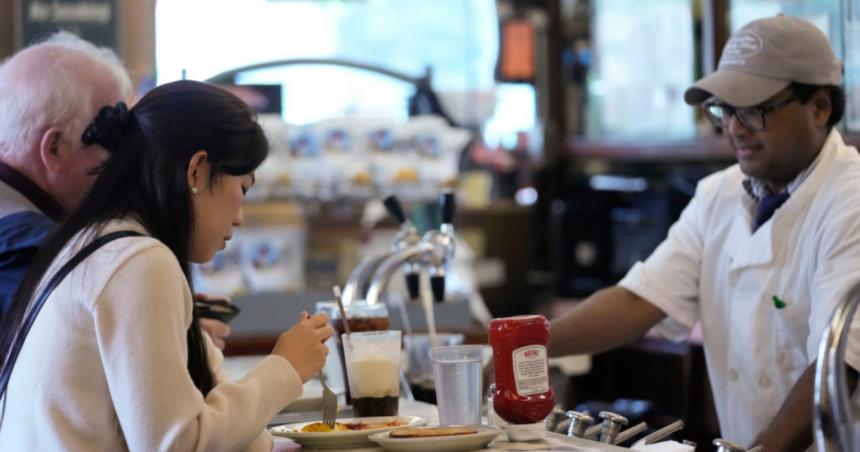A decline in consumer confidence was observed in June as expectations for the near-term future decreased. The Conference Board, a business research group, reported on Tuesday that the consumer confidence index fell to 100.4 in June from 101.3 in May. However, the decline in the index was slightly better than analysts had anticipated.
The index evaluates both Americans’ views on current economic conditions and their outlook for the next six months. In June, the measure of Americans’ short-term expectations for income, business, and the job market dropped to 73 from 74.9 in May, signaling a potential recession if the reading falls below 80.
On the other hand, consumers’ assessment of current conditions improved to 141.5 in June, up from 140.8 in May. Dana Peterson, the Conference Board’s chief economist, stated, “Confidence dipped in June but stayed within the same narrow range seen over the past two years, with positive views on the current labor market outweighing concerns about the future.”
Despite the rise in the unemployment rate to 4% in May, employers in the U.S. added a substantial 272,000 jobs, indicating confidence in the economy to continue hiring despite high interest rates. The increase in job creation was largely driven by consumer spending on travel, entertainment, and other services, with U.S. airports seeing near-record traffic over the Memorial Day weekend.
Related story: Annual inflation rate cools to 3.3% but remains well above Federal Reserve’s target
Although job gains in May exceeded expectations, there are signs of weakening in the labor market, with job postings hitting a low point in April and the number of Americans receiving unemployment benefits increasing for seven consecutive weeks. Mary Daly, president of the San Francisco Federal Reserve, emphasized the need to monitor potential increases in unemployment closely as the labor market could face challenges ahead.
Overall, most economic indicators suggest that the U.S. economy is in good shape by historical standards, even though there are indications of slowing growth. The economy slowed significantly in the first quarter of 2024 to a 1.3% annual pace, down from a 3.4% growth rate in the previous quarter.
Retail sales saw slight growth of 0.1% in May compared to April, as high prices and interest rates constrained consumer spending. In response to cautious spending behavior influenced by inflation, major retailers have begun offering discounts to attract shoppers. Quarterly earnings reports from big retailers indicate that while consumers continue to spend, they are becoming more price-conscious.
The Conference Board reported a decrease in consumer expectations of a recession in the next year in June, following a two-month increase in previous months.





